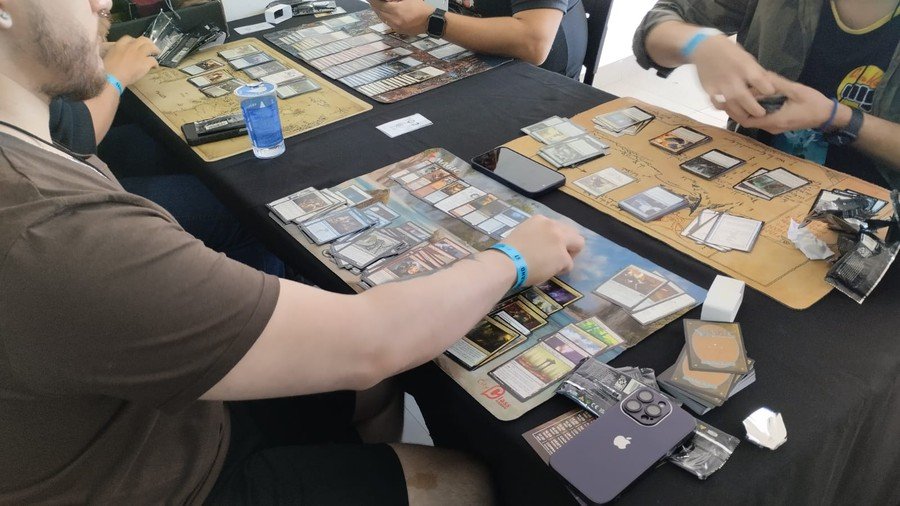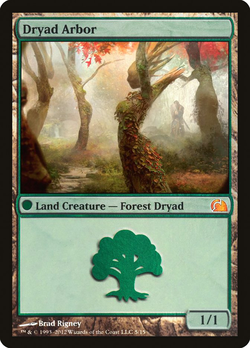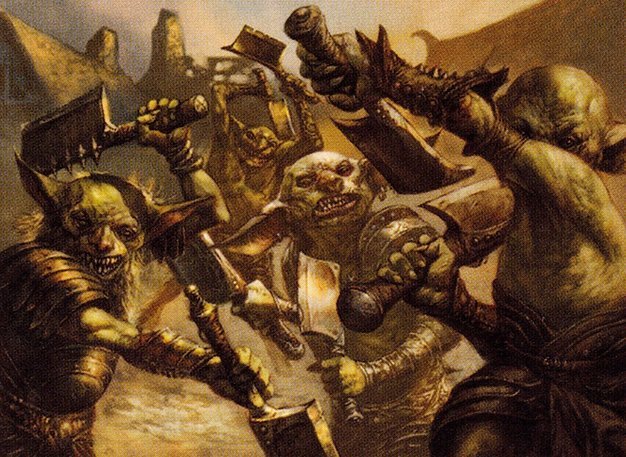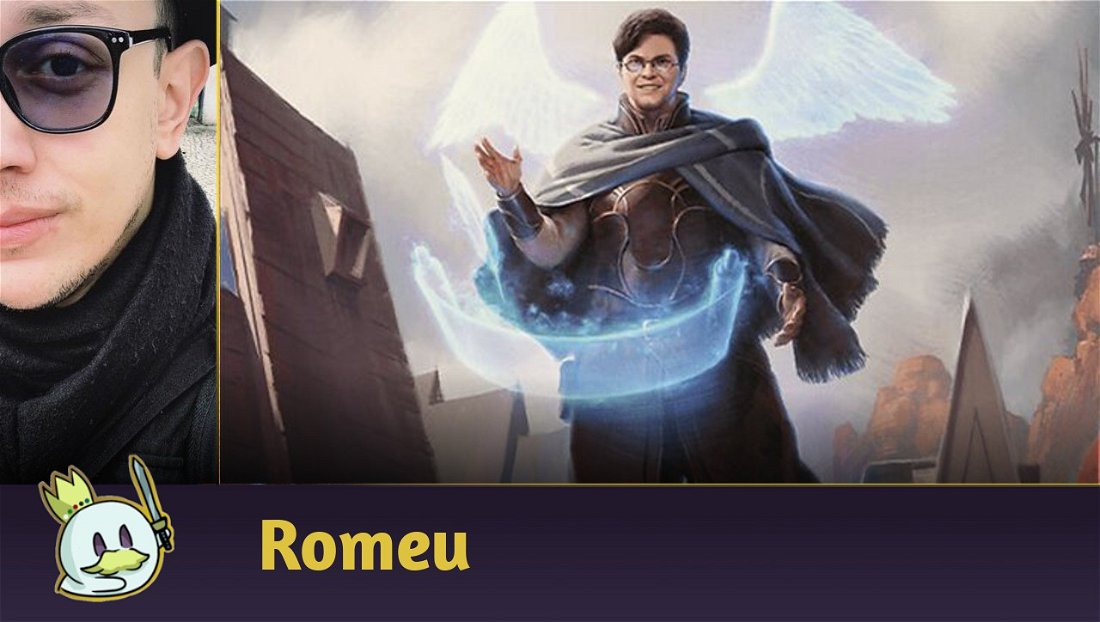Introdução
Hello, there!
As we know, a lot of Magic rules change. Either to better resonate with new card designs, or simplify interactions, and even to "update" tournament procedure.
Let's talk about some situations that ended up bringing important rules changes in the game! It’s interesting, when we take this “historical” look and realize how the game has changed – and, at the same time, we also think “wow, how come this rule wasn’t always like this??”
I selected five very interesting situations, each at a very different moment - we have more than twenty-seven years between the most recent and the oldest. Here we go!
Ad
5 Situations That Changed MTG Rules!
Tournaments with open Decklists and presenting the WRONG decklist - 15/04/2024

One really cool thing about recent competitive events has been the flexibility in presenting decklists in digital format. This also allowed another new feature - tournaments with an “open” decklist, where you can know the contents of your opponent's deck before the match!
However, some unusual situations may occur in this procedure - for example, if players carry a printed decklist with them (to make it easier to present it to the opponent before the match - and also save battery life on their smartphone, which is always welcome!) and, through lack of attention, end up with someone else's decklist. Then, in the next round, without realizing it, they present the wrong decklist to their opponent - but the error, of course, will only be discovered when the game itself starts and the opponent asks “hey, where did this Boros Fastland came from? ? The list says you have a Dimir deck…”
This situation occurred in tournaments around the world (including here in Brazil), and in enough frequence that Wizards decided to respond and update the IPG accordingly: in Competitive REL tournaments, presenting the wrong decklist in open list tournaments results in a game loss.
So, if you're playing on a tournament with open decklists in the near future (here's looking at you, Regional Championship players!), be extra attentive!
Sideboarding and ending up with more cards in your Maindeck - 23/05/2013

Let's jump forward 11 years now, and remember a rule change that certainly punished the most “inattentive” people - the number of cards in the post-sideboard deck.
Until the change, on 23/05/2013, the number of cards in your “maindeck” had to be exact. If, in Game 1 of a Match, you presented X cards to your opponent, in Game 2 (after the sideboard) you had to present X cards again - sideboard should be "one for one", one card out for each card in. If an “incorrect” number was presented after the sideboard, it was considered an illegal deck, and the penalty in the Infractions Guide was a Game Loss!
The situation that became famous at the time was this: in Pro Tour Avacyn Restored (format: Innistrad Block Constructed), during the Top 8 (broadcast live), the famous Jon Finkel faced the then “rookie” Alexander Hayne. The match is 2-2, and the players are preparing for the fifth and decisive game, which would decide who advances to the semifinals.
Hayne, visibly nervous, presents the deck and, as Finkel cuts, Hayne takes a quick look at the sideboard and sees that he has 13 cards, and that he presented 62 to Finkel. Hayne calls the judge, explains what happened, but knows that he presented a deck considered illegal according to the rules at the time. Finkel even “appeals” for the head judge not to apply the game loss, as he actually wanted to play and not win the match on a "technicality". As Hayne himself identified the problem and called the judge in time, a downgrade was applied and the penalty was just a warning. Hayne removes the 2 “extra” cards, presents the deck again, and the game continues (spoiler: Hayne ends up winning the tournament, with the famous “UW Miracles” deck).
Ad
This situations became notable (including Finkel's display of sportsmanship), but it certainly wasn't the only occurrence of its kind, and Wizards then promoted the rule change in May 2013: as long as post-sideboard both your deck and your sideboard remain valid (that is, in Constructed formats, a deck with a minimum of 60 cards and a sideboard with a maximum of 15 cards), the presented deck is considered legal.
"Combat" and "Declare Attackers" - 07/07/2017

Fast forward 4 years, during Pro Tour Aether Revolt in July/2017, we have a situation that caught the attention of spectators in the 8th round of the tournament, which was broadcast in full by the official Coverage.
Player César Segovia, from Panama, with a BR Aggro (Vehicles), faces Thien Nguyen, from the USA, with a BG Midrange-Constrictor - both 7-0 so far. In the first game, at one point César drops a Weldfast Engineer, asks “Combat?” and receives the “ok” from the opponent. Caesar points to his Heart of Kiran, taps the Engineer and announces the attack with remainig creatures and the vehicle. Thien shakes his head and calls the judge, indicating that the opponent announced “Combat”, and was trying to crew the vehicle and then attack.
It may seem strange today, but the rule at the time said that when a player announced “combat”, they were not announcing a change of phase (from the Main Phase to the beginning of the Combat Phase) but rather a “jump” directly to the Declare Attackers Step! In other words, despite having demonstrated his intention to crew and then carry out his attack, the fact that Cesar had clearly announced “Combat?” obliged him to that specific rules shortcut at the time. César had to continue his attack without the vehicle, and ends up losing the game (but -spoiler alert- ends up winning the match 2-1).
Several discussions swept social media at the time, covering everything from problems with language barriers (since the rule was meant for a specific use in English, which would not necessarily be the same for countries that do not have English as their main language) to the fact that Game Design increasingly included effects that triggered “at the begginig of combat”, making the "Beggining of Combat" step indeed relevant.
The fact is, in July 2017, the rule involving this shortcut was changed, and declaring “Combat” indicates that the person wants to give priority to leave the main phase and enter the combat phase (before declaring attackers).
Lands behind, creatures front, all facing you (and no hiding your Dryad Arbor!) - 23/04/2018
The very next year, in April 2018, another interesting change occurred, and was undoubtedly the result of increasing “streaming” of the game. More and more events were being streamed, in addition to the official one, and this showed the importance of updating some rules regarding the positioning of cards on the table.
Although there was already an understanding that “lands behind, non-lands in front” was the most suitable format for both players and event coverage (since the most relevant cards are closer together, and combats occur more fluidly , without creatures “jumping” from a row of lands), there was no official rule determining that the positioning was this or that.
Ad

In February of that year, during Grand Prix Lyon (Modern event with full video coverage), Hall of Famer Gabriel Nassif, playing BR Hollow One, faces Thomas Langlotz, playing Bogles. At a certain point in the first game, Thomas already has a Slippery Bogle and several auras, he plays a Dryad Arbor from the From the Vault edition (which is basically the design and symbol of a basic forest with the power/toughness 1/1 at the lower right) and passes the turn. Nassif plays his turn normally, announces his attack and uses flying creatures and a creature with intimidate, thinking that the opponent only had the Bogle to block. Behold, the Dryad jumps off the lands, ready to aid in the block, giving Thomas the advantage in the counterattack.
It certainly wasn't the only situation of its kind, but it was a huge exposure, and in April the tournament rules were updated, officially establishing that lands must be “behind”, non-lands in front, and in occurrence of cards that have both types (for example, Dryad Arbor), they must always be in front, next to the creatures.
Pay mana first, then play your spells, and the "Player Riot" - 03/03/1997

The situation that deserves first place was so “early” in the game that, as far as we know, there is no video record of the event. To date, the 1997 Pro Tour Los Angeles is still the only professional-level tournament that was decided on a disqualification. We are talking about very ancient history, so get ready!
As I mentioned at the beginning of this article, changes to the rules always occur to adapt the game to the design and way it is played. The idea is always to encourage people to play appropriately, and not to unnecessarily determine orders/steps that only add complexity.
One of the prevalent rules in the early years of the game was that you needed to generate mana before you could cast your spells. In fact, it was considered a penalty to announce a spell without the adequate mana in your pool to cast it!
And, well, that was unfortunately what happened in the final of Pro Tour Los Angeles, in March 1997, when David Mills (who had already received several warnings from the judges throughout the tournament for breaking this rule), excited by the play that would define the game, announces the spell, but doesn't tap lands first to have the necessary mana. In the middle of the finals, he was disqualified, due to the continuous repetition of the infraction, having already received previous warnings and penalties.
There was a huge commotion among the other Pro Tour participants, who made their dissatisfaction clear, even interrupting the awards ceremony. In the end, the disqualification was upheld (giving the champion title to Tommi Hovi), but Mills was allowed to be declared 2nd place and keep the prize money.
Ad
Shortly after the Pro Tour, there was a rules change, allowing “generate mana / announce magic” to occur in any order.
Conclusion
Well, I hope you enjoyed the article!
It was undoubtedly an exercise in memory and history to write about these events, and I find it very interesting to see how this game that we love so much has evolved over time. Here's to many more years to come, and lots of changes too!
See you next time!








— commentaires0
Soyez le premier à commenter